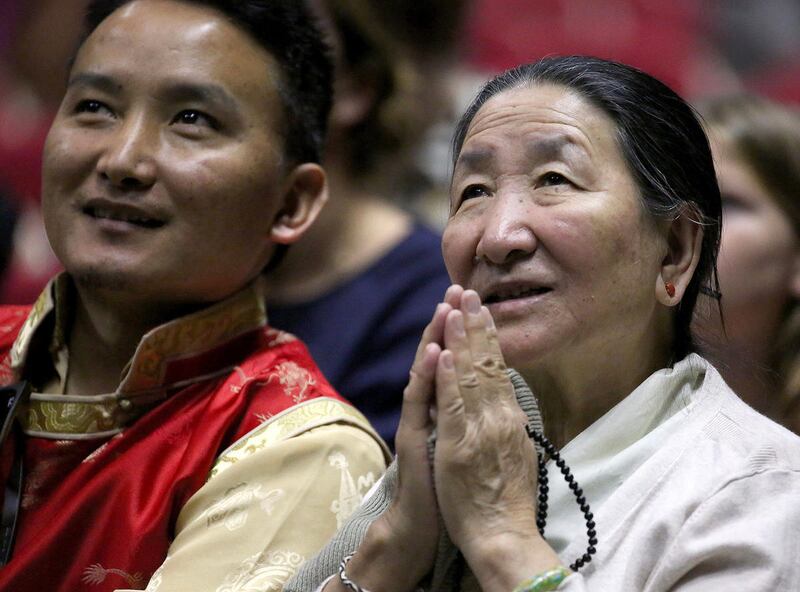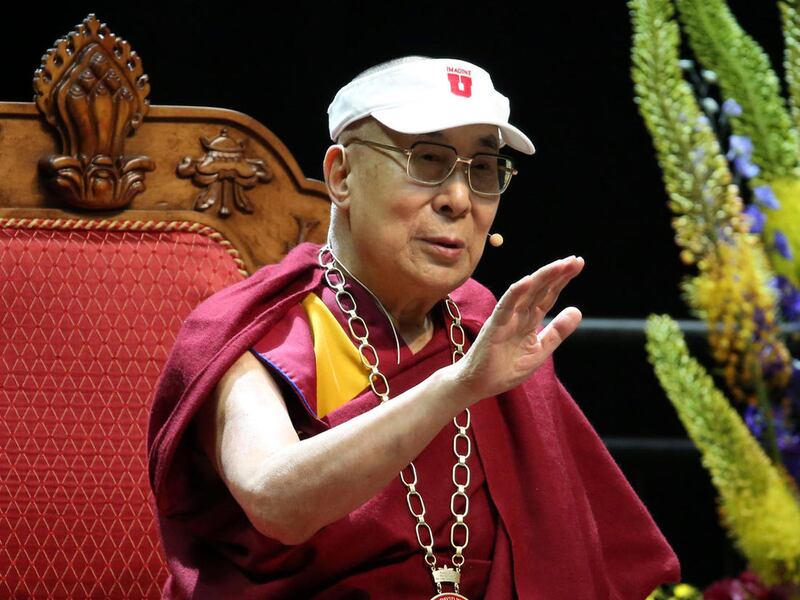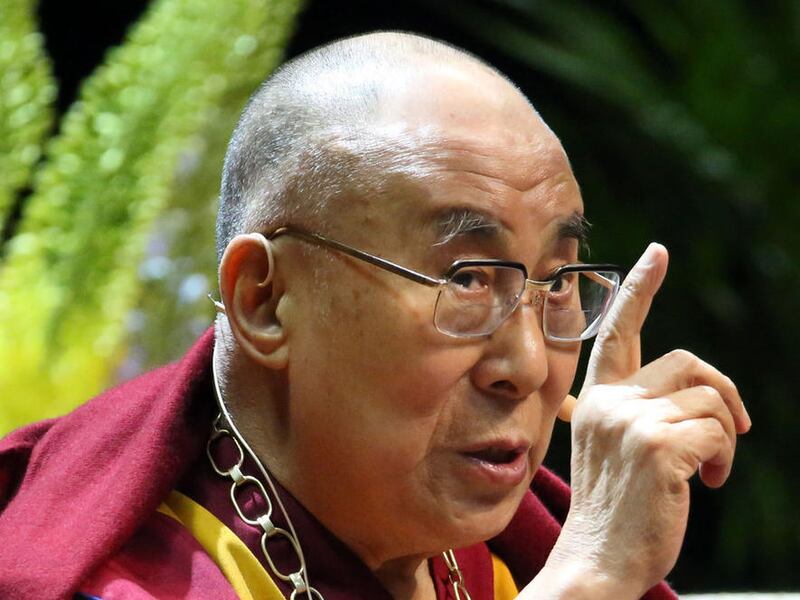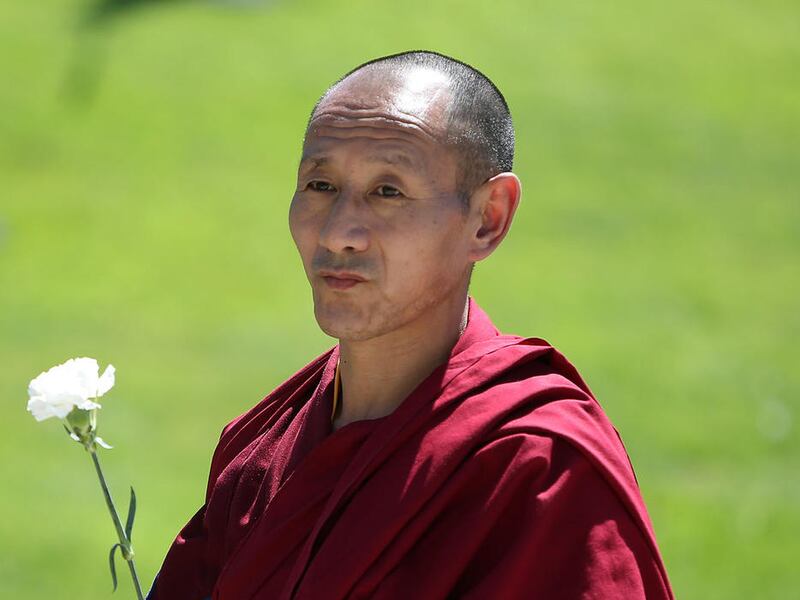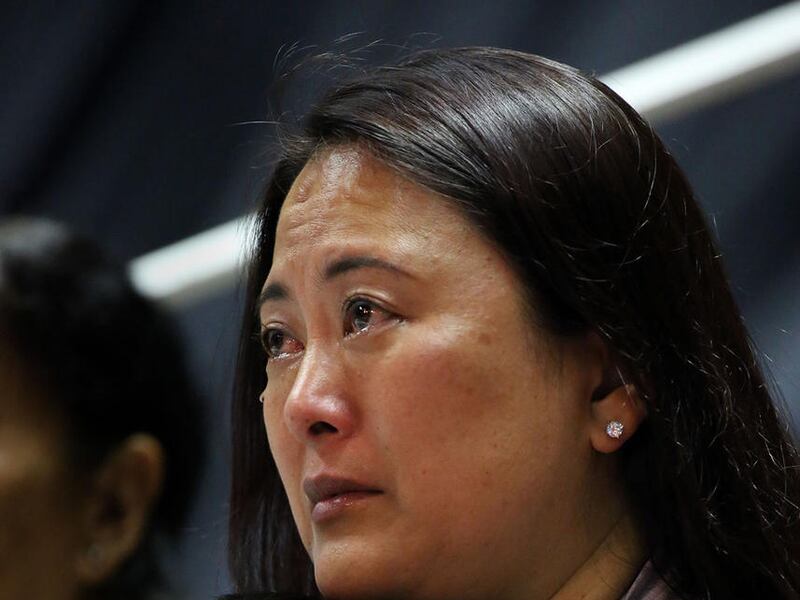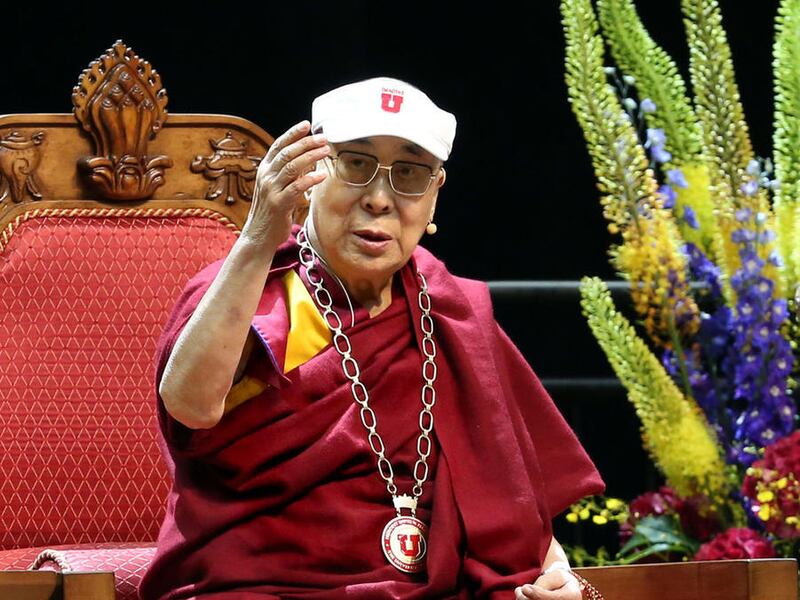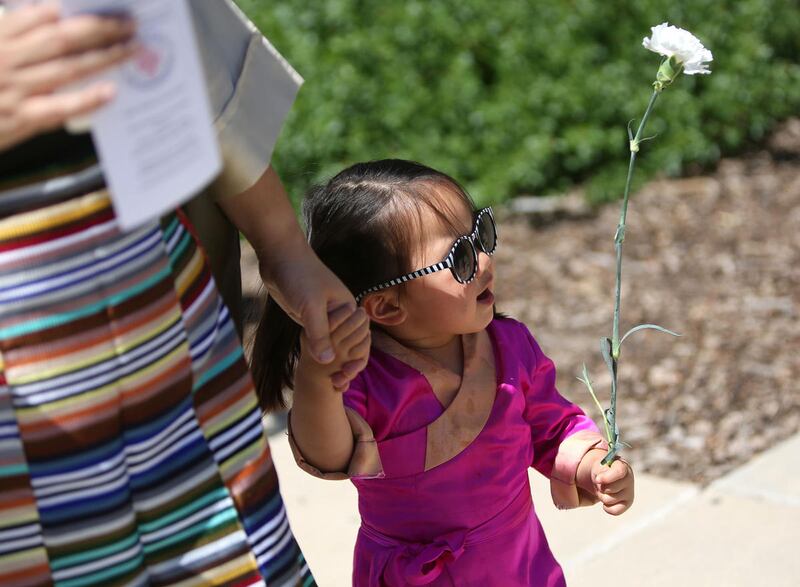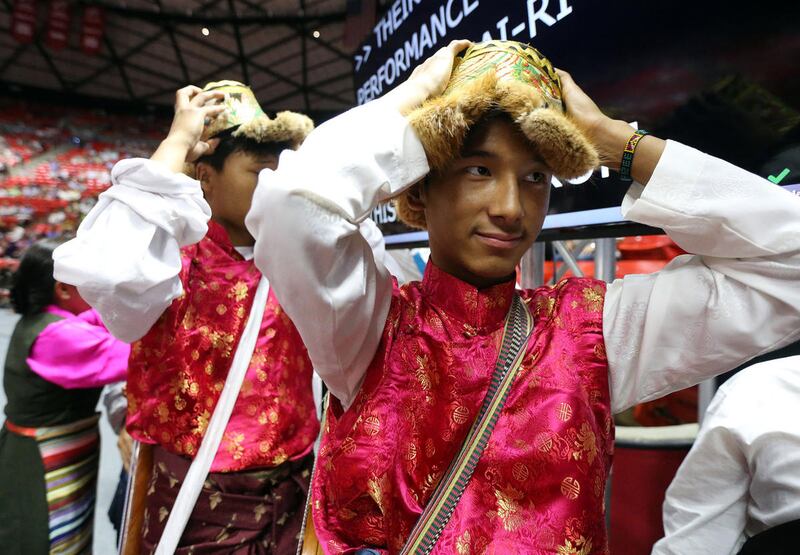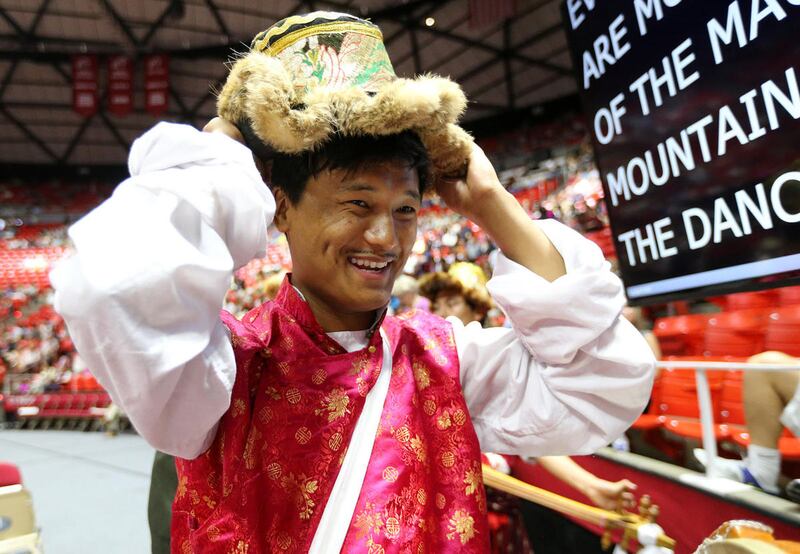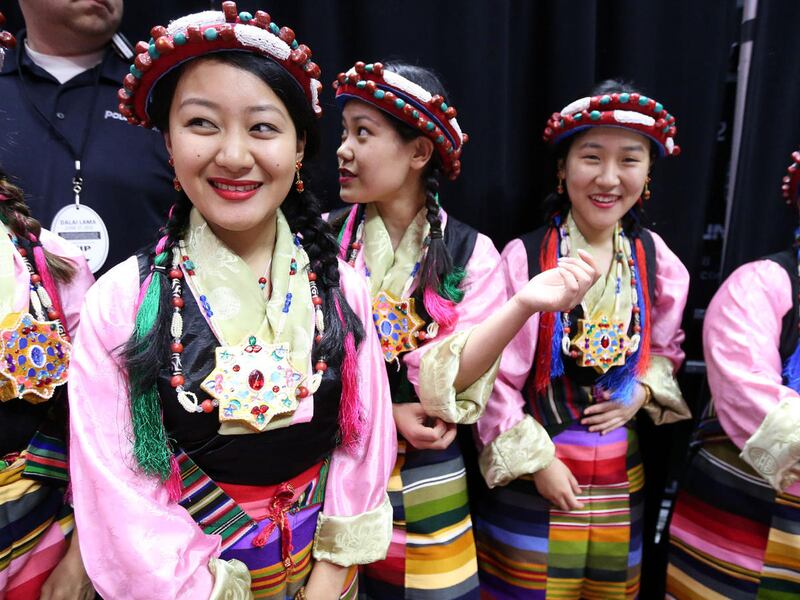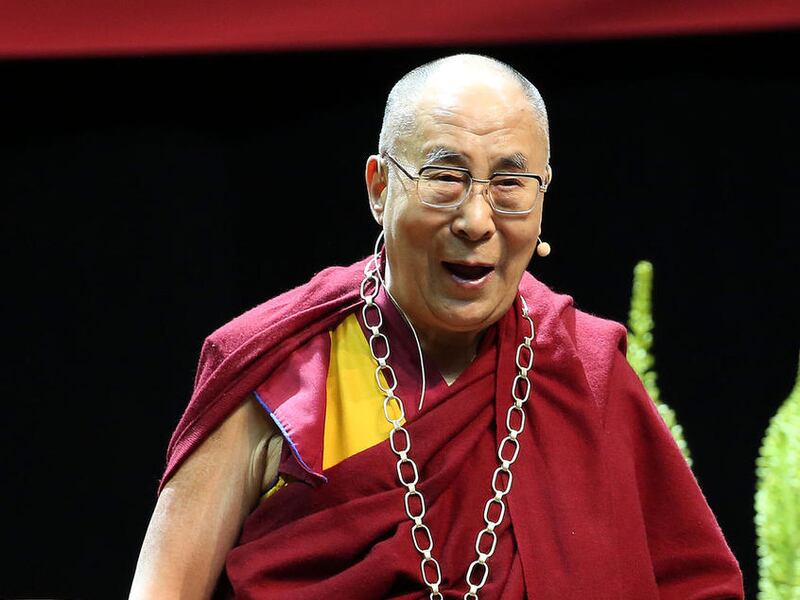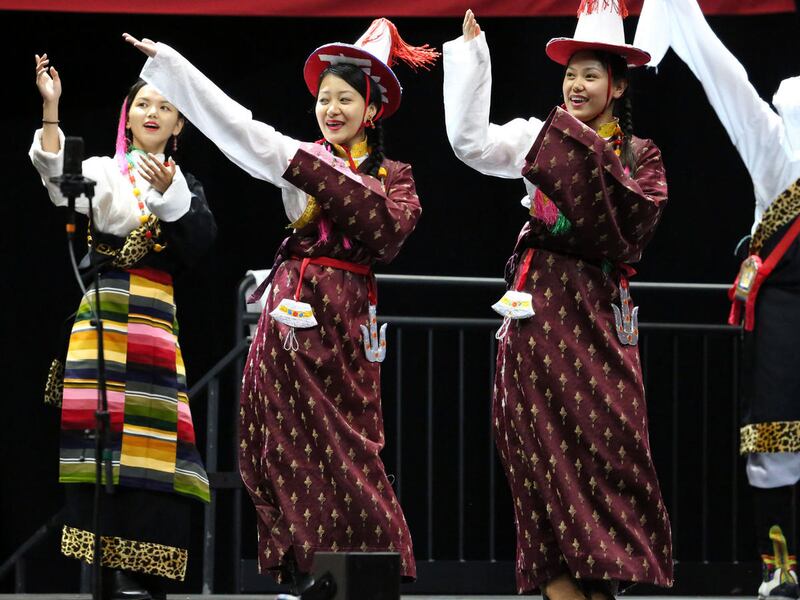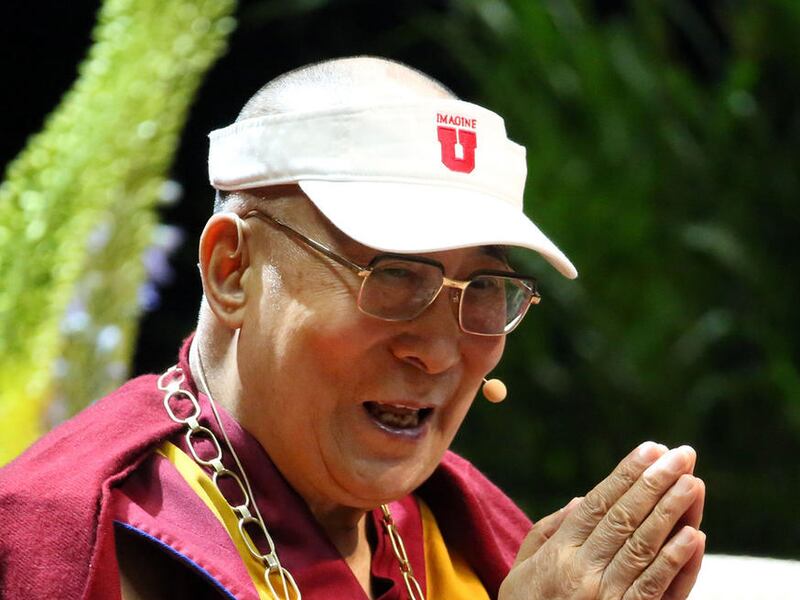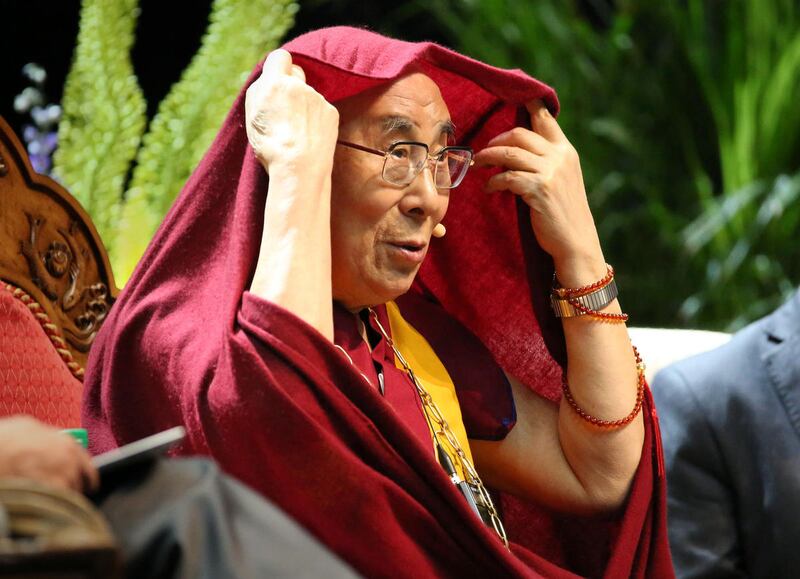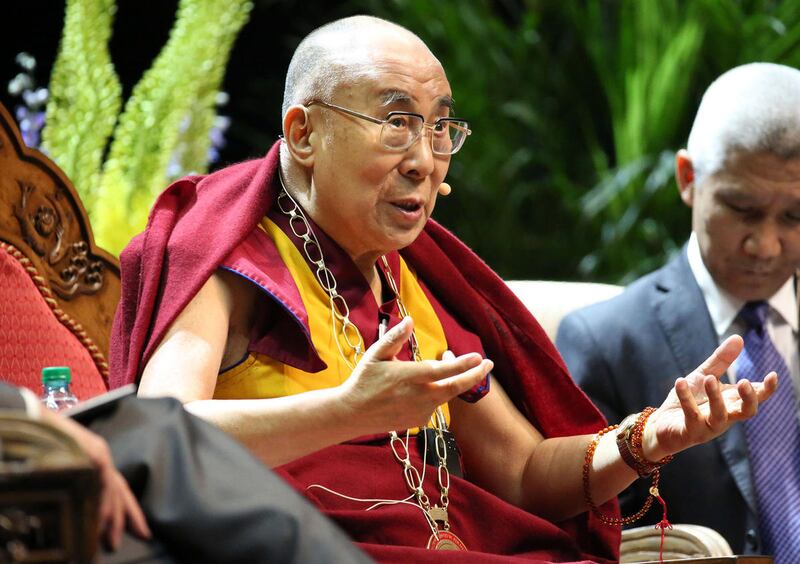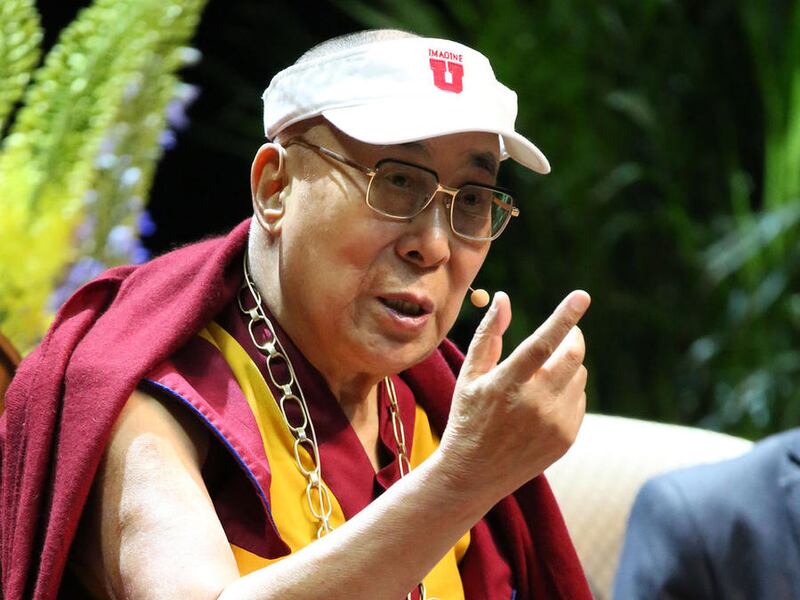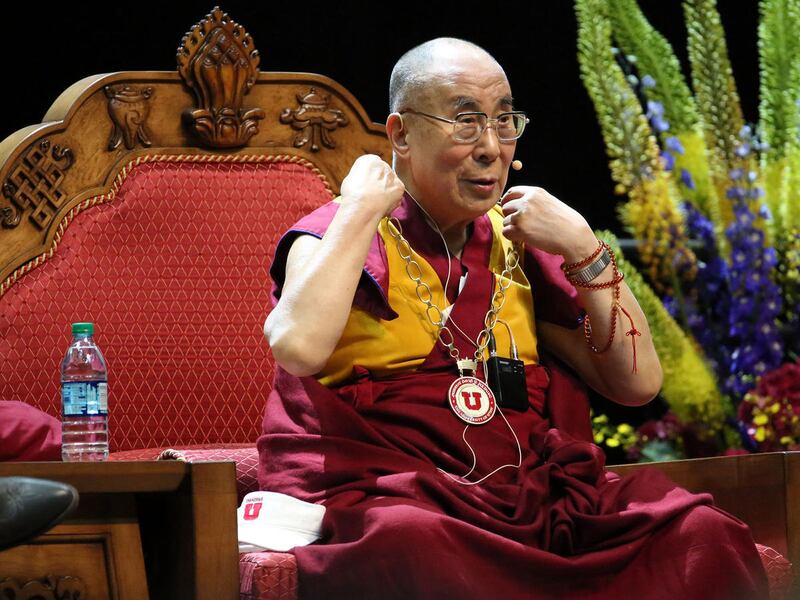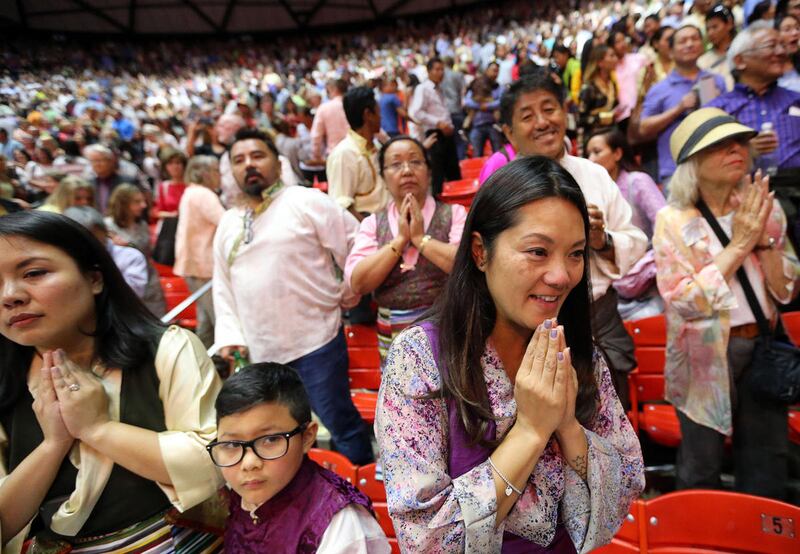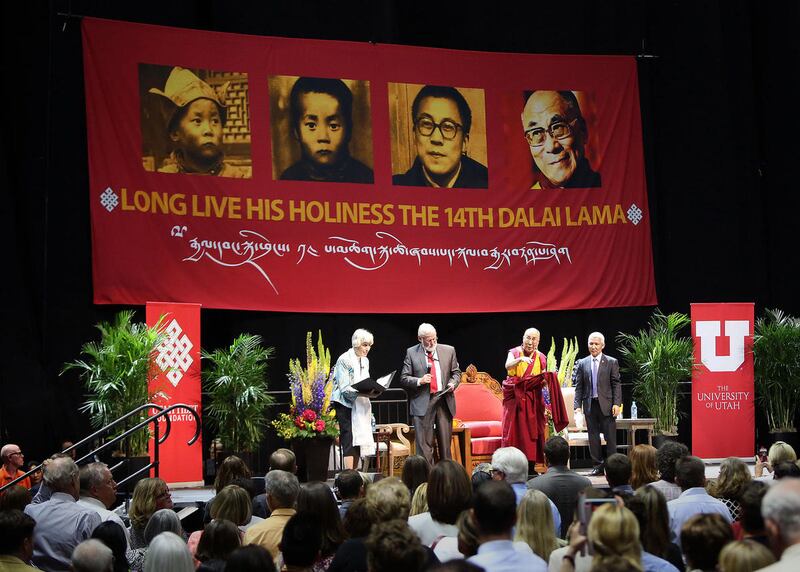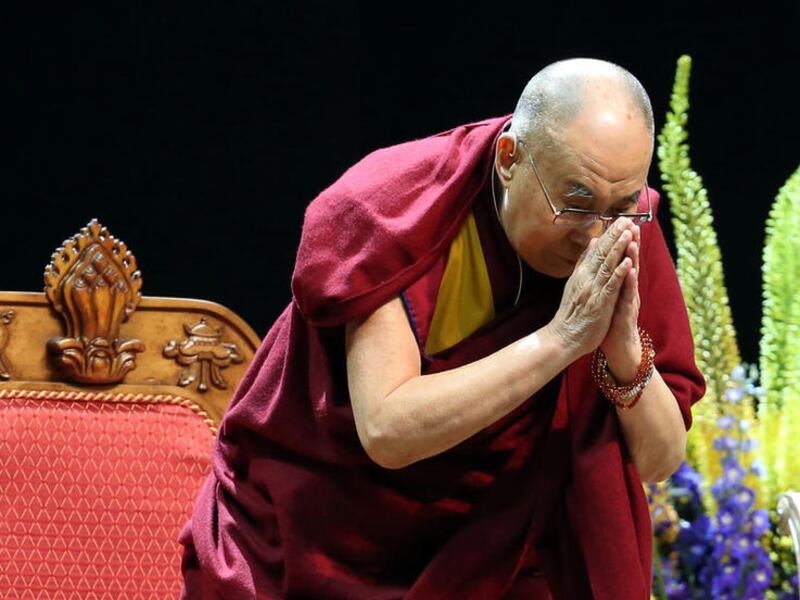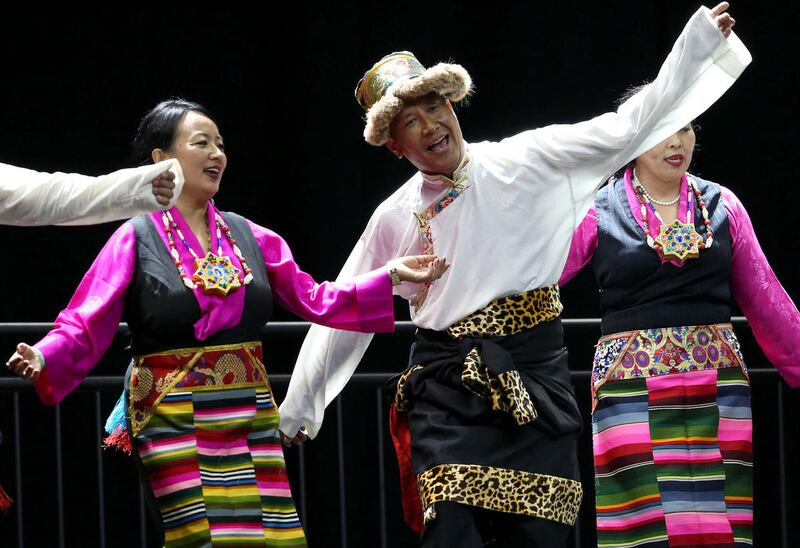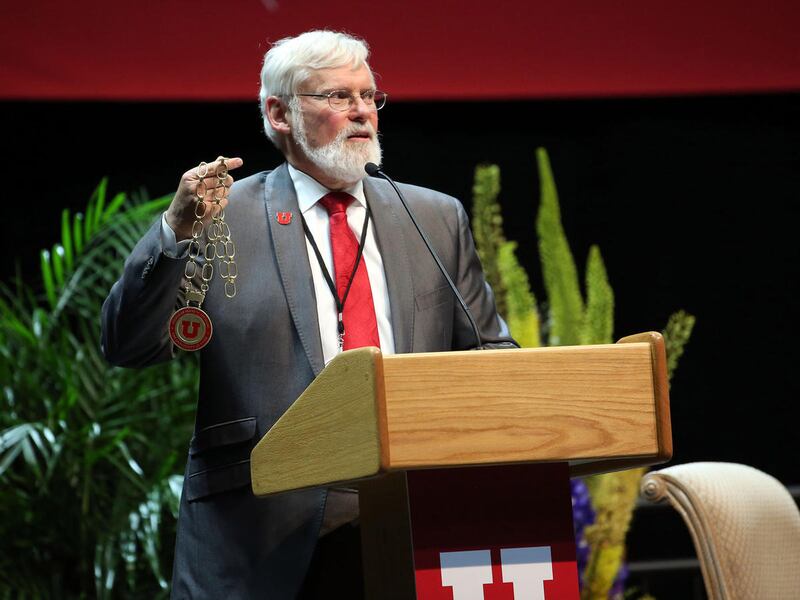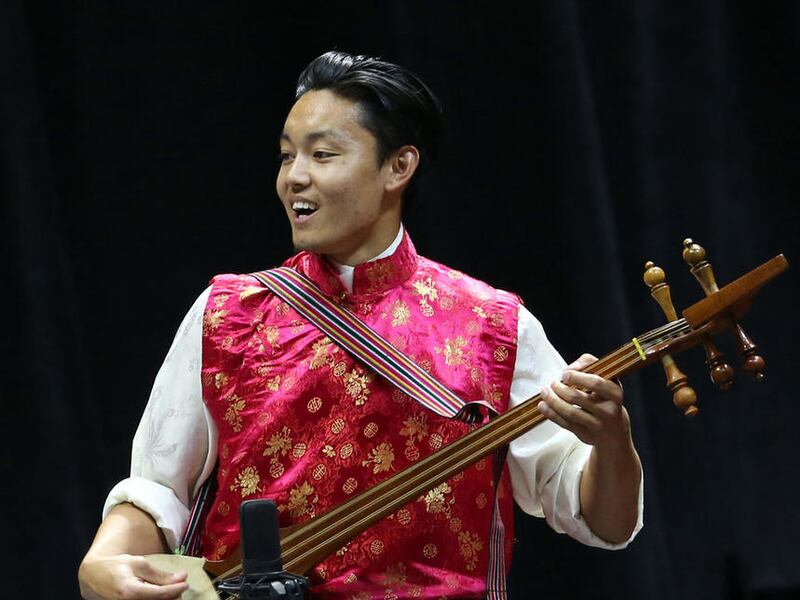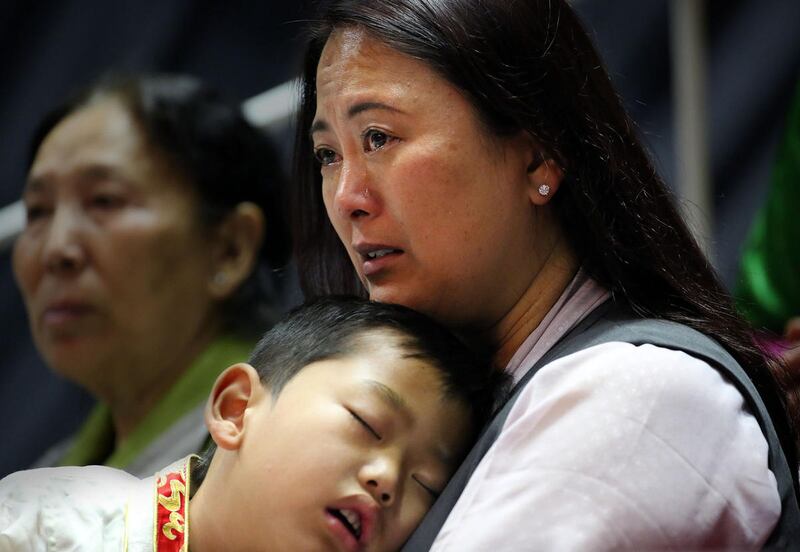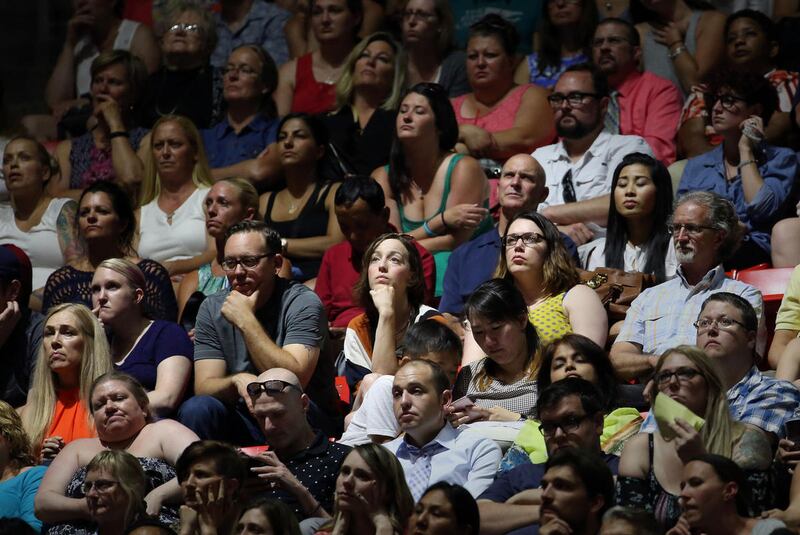SALT LAKE CITY — His Holiness the 14th Dalai Lama of Tibet told a sold-out crowd Tuesday at the University of Utah's Huntsman Center that he is skeptical that peace can be achieved through prayer.
Man creates violence and destroys peace, he said. "Not God, but you, so you have the responsibility to solve this problem. So that's quite logical," he said.
But the Dalai Lama said friends who are scientists and study human nature tell him basic human nature is compassion.
"That gives me real hope. If our basic nature is anger, then no hope," he said.
As the Buddhist spiritual leader entered the arena, the crowd rose to its feet and fell silent as it waited for him to speak.
He said simply, "Hello," then won over the crowd by donning a University of Utah visor and a presidential medal presented to him by U. President Dave Pershing. He wore both throughout his presentation.
Many people interviewed at the conclusion of his speech and brief question-and-answer period said they were struck by the beauty and simplicity of the Dalai Lama's message.
"He seemed really genuine, a good heart," said Matt Sojourner. "Simple, motivational and inspirational would be the best way to describe it."
Sojourner said he was particularly struck by the Dalai Lama's remarks on man taking responsibility for violence in the world.
"He was saying action is what can cure the violence. I think that’s pretty true. Action causes violence, and I think action can take it away," he said.
LeNae Onstad, who is a hospital chaplain, said she believes that "prayer is compassion" but prayer, as the Dalai Lama explained, must be followed by action.
"Prayer can bring comfort to people, but what I think he is saying is maybe prayer can give people the thoughts, the feelings and the emotions and the drive to do it. You still have to put those prayers and thoughts and drives into action," she said.
Audience members' questions to the spiritual leader ranged from his take on climate change to one man's anguish over his father's suicide.
"Climate change, that I don’t know. Ask some specialist about that," he said, drawing laughter from the audience.
"I have serious concerns about global warming. This blue planet (is) our only home. (If) it (is) damaged beyond repair, then (we have) no other choice but to be responsible for it."
As for suicide, the Dalai Lama started his response saying, "Sad."
"Carry on in meaningful ways and with lots of enthusiasm, then (your) father will feel very happy," he said.
"Then what happen after death, that is more complicated, no question," acknowledging different belief systems vary greatly on the issue of afterlife, he said.
He urged members of the audience not to think of the world as huge or that as one individual can accomplish little.
Changes in humanity started with one individual. It starts with an individual, then within a family, "10 families, 100 families, 1,000 families, 10,000 … That's the way to change," he said.
The point resonated with Lisa Craghead, of West Jordan, who said it was a thrill to see the Dalai Lama in person.
The takeaway message for her was "one person can make a difference. I think it’s so hard to see everything in the news, to even see everything around ourselves and even in our own lives, it’s difficult to take that perspective that one person, one action, can have that tiny ripple effect. But it grows and grows and can affect a family, or 10 families or thousands of families."
The Dalai Lama said he is scheduled to address the U.S. Conference of Mayors meeting in Indianapolis later this month.
As "the leading nation in the world," the United States has a responsibility to end violence and encourage peace, he said.
"Already in this county there are a few cities they call city of kindness, cities of compassion. In no other country they have that," the Buddhist spiritual leader said.
"I think that kind of spirit should spread."
Jack Dahlstrom, who attended the speech with his family, said the Dalai Lama's message was thought-provoking.
“People look for all these complex answers to everything. It’s really about keeping it simple, not trying to hurt other people. Think of everybody before you do anything,” he said.
His brother, Michael Dahlstrom, said people often hear messages imploring human beings to love one another.
“Coming from someone who has actually lived that way his entire life means that much more. It was a really clear, genuine message. You can hear it. You can feel it when he says it. People say these things all the time, but coming from a man who had dedicated his whole life to that lifestyle was great. It was really cool.”
Earlier in the day, the Dalai Lama visited patients at the Huntsman Cancer Institute, Pershing said.
He also attended a luncheon hosted by Utah Gov. Gary Herbert and attended by other elected officials, the spiritual leader said.
His appearance was long-awaited. The Tibetan spiritual leader had been scheduled to speak last October at the U. and headline the Parliament of the World's Religions, which was held in the state's capital city. Both appearances were canceled after physicians at the Mayo Clinic ordered the now 81-year-old Dalai Lama to rest.
Community advocate Pamela Atkinson announced that the Dalai Lama had requested that proceeds from the event, about $97,000, be donated to Primary Children's Hospital, Utah homeless services providers and for preservation of the Tibetan culture in Utah.
This is the Nobel Peace Prize winner's second visit to the Utah, with the first coming in 2001 when he also spoke at the U.
Jan Ewing said she had attended both of the Dalai Lama's appearances in Utah.
“I feel peaceful talking because that’s just the way he is. He speaks of compassion and how we must bring that attitude. It makes me think, ‘Oh, of course. Why must we fret so much about so much?'" she said.
The Dalai Lama was exiled from Tibet in 1959 during the uprising of Tibetans against the Chinese army. He escaped to India and established the Central Tibetan Administration to meet the needs of refugees and seek to maintain their culture. He travels the globe promoting peace and compassion. In 1989, he was awarded the Nobel Peace Prize for his nonviolent struggle to free Tibet.
The Buddhist spiritual leader’s American tour began with an address to the United States Institute of Peace in Washington, D.C., on June 13. Next, he travels to Boulder, Colorado.
Before departing Utah, the Dalai Lama is scheduled to visit Utah's new Tibetan Community Center for a private event Wednesday morning.
As he left the stage at the Huntsman Center, the Dalai Lama ended his appearance on another simple note: "Thank you. Good night."
Email: marjorie@deseretnews.com

